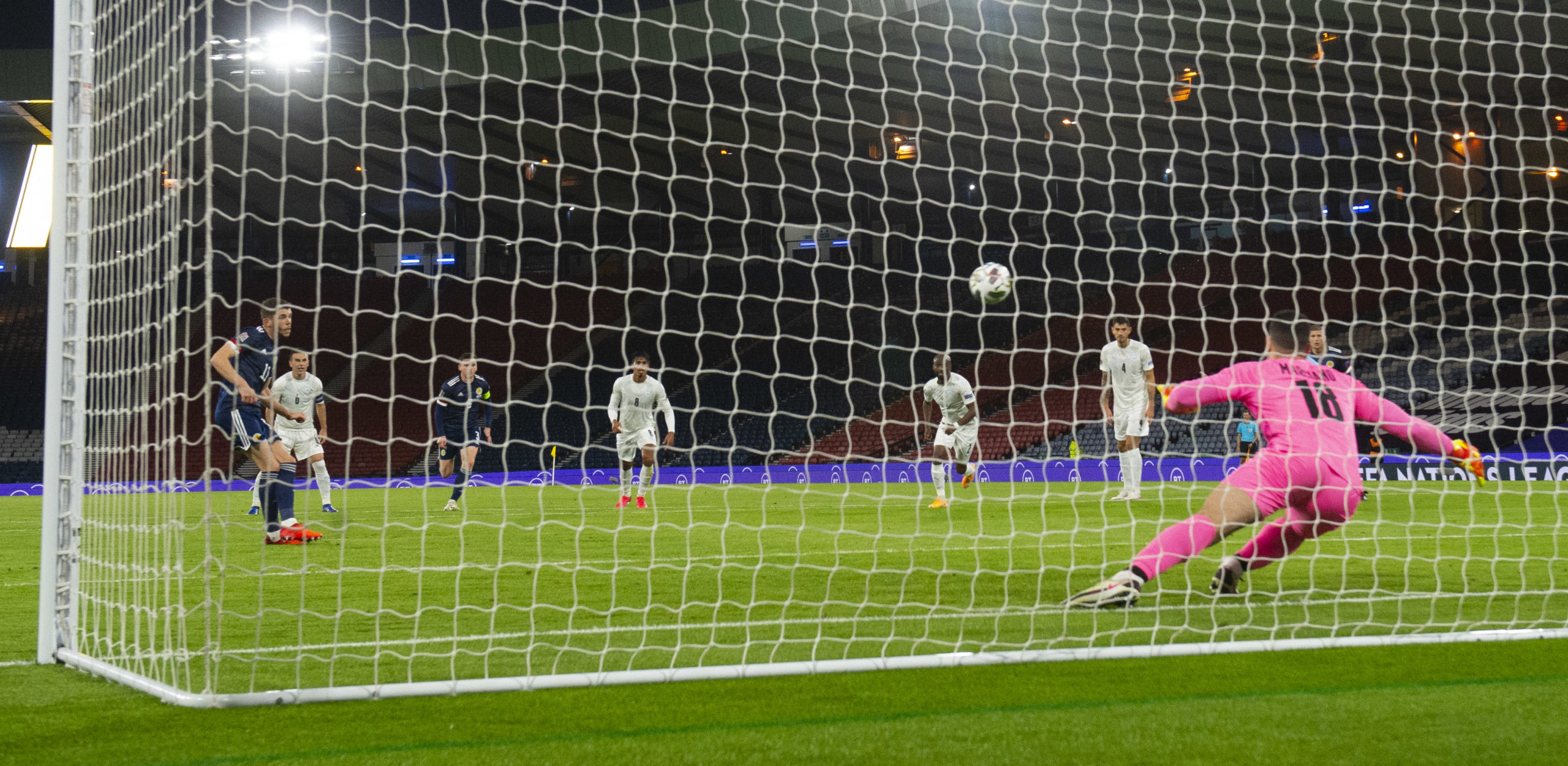Steve Clarke was “reasonably pleased” with the back three system he employed in the opening Nations League draw with Israel at Hampden last night.
Scotland, ahead via Ryan Christie’s first-half penalty, were pegged back in the second half by Eran Zahavi’s strike.
Boss Clarke used a three-man defence of Arsenal left-back Kieran Tierney, Aberdeen centre-half Scott McKenna and Manchester United midfielder Scott McTominay for the fixture.
He said: “We were reasonably pleased. There was obviously a slight tweak to the system and we only had three days training to work on it.
“The lads took a lot on board. There were some good things, some bad things obviously.
“It was disappointing to lose the goal in the second-half when I thought we had reasonable control of the game defensively.
“There was maybe not enough going forward at that stage in the game, but towards the end of the game we pushed on again and Stuart had a chance near the end that could maybe have nicked it for us. There were some good things and some bad things.”
Clarke had both Premier League left-backs, Tierney and Liverpool’s Andy Robertson, available for the first time in his tenure, and the system allowed him to fit both into the side.
The manager added: “I was just looking to give us another option and a different way to play at certain times against certain teams. It just seemed like a good game to try it.
“Obviously, Kieran had come back in and I wanted to see Kieran and Andy playing. Kieran has been playing very well in that position and I thought he acquitted himself really well tonight as well along with Scott McKenna and Scott McTominay.
“I thought the back three were decent.”
Scotland will meet Israel again in their European Championship play-off semi-final at the national stadium next month and Clarke thinks last night’s stalemate has educated both sides.
He said: “I think we have both had a little look at each other.
“We played a strong team, they played a strong team. We will have some video, we will have some idea of some problems they can cause us.
“Likewise, they will have some ideas of problems that we can cause them. It should be an interesting game next month.”

